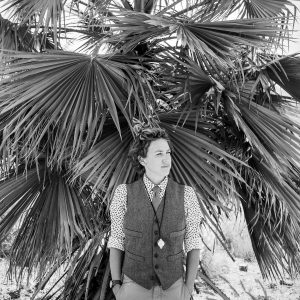With over 80 percent of the U.S. population now living in urban areas, cities have arguably become humanity’s new natural habitat. Though urban ecosystems are not wholly owned and managed by public entities with a sole focus on ecosystem restoration or enhancement, they do play an essential role in advancing conservation goals. Municipal governments have the power to address stewardship issues on a wide scale across both public and private lands through plans, reports, and policies. With ambitious work programs underway like the Biodiversity Index and Wildlife Ordinance, the City of Los Angeles is actively working to “manage” LA’s urban ecosystem. These efforts can provide other cities with a roadmap for how government entities might address biodiversity, habitat connectivity, and climate resilience in their own urban contexts.

Managing Urban Ecosystems
Webcast Video
Guests

Kat Superfisky
City of Los Angeles
Urban Ecologist
SUPERFISKY is an urban ecologist, designer and educator who devotes their days, nights and dreams to transforming urban areas into more habitable places for people, plants and other animals. After obtaining a Master of Landscape Architecture, Master of Science in Conservation Ecology and Teaching Certificate from the University of Michigan, SUPERFISKY moved 2,300 miles across the country for the Los Angeles River. SUPERFISKY sees LA—and its river—as the perfect laboratory to explore how to (re)design urban areas into more “symbiotic cities."
Prior to transplanting in LA, SUPERFISKY helped coordinate ecosystem management efforts for 24,000 acres of parkland in Metropolitan Detroit, and developed an interactive environmental education program about sustainability in the built environment for the University of Michigan. In LA, SUPERFISKY has spearheaded ecological planning and design efforts at Studio-MLA (a landscape architecture and urban design firm), founded Grown in LA (a nonprofit that is helping to increase the local collection and propagation of climate-appropriate plants, while providing Angelenos with educational and workforce development opportunities), and is currently the City of Los Angeles’ first Urban Ecologist.
Prior to transplanting in LA, SUPERFISKY helped coordinate ecosystem management efforts for 24,000 acres of parkland in Metropolitan Detroit, and developed an interactive environmental education program about sustainability in the built environment for the University of Michigan. In LA, SUPERFISKY has spearheaded ecological planning and design efforts at Studio-MLA (a landscape architecture and urban design firm), founded Grown in LA (a nonprofit that is helping to increase the local collection and propagation of climate-appropriate plants, while providing Angelenos with educational and workforce development opportunities), and is currently the City of Los Angeles’ first Urban Ecologist.